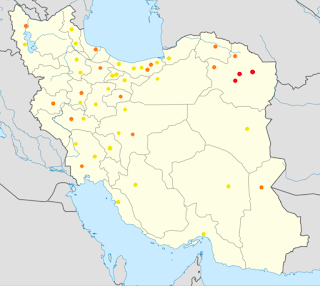Protests in Iran
Thursday, January 04, 2018
There's a good piece in Maclean's about what's going on in Iran. Probably the most interesting aspect of the protests is that they may be a repudiation of Islamic rule:
There are protesters speaking up against the Islamic Republic and protests are happening in areas you'd expect would more likely support the regime. And other parts of the piece note that saying things like this -- even merely complaining about the economy -- are crimes punishable by death under the current regime.This time around, the uprising is leaderless, and freelance journalist Samira Mohyeddin, a prominent figure in Toronto's Iranian diaspora, says that's a good thing. "There isn't a single person they can go after and put under house arrest. The regime is scared, and that's what's really interesting. You can tell they're afraid the red lines are gone," she told me. "People are saying 'Death to the regime.' They're saying 'Death to Hezbollah.' They're saying 'No to Syria, No to Gaza, No to Yemen.' Iran's imperialist behaviour is being called into question. The chants are 'We don't want an Islamic Republic.' Posters of Khamenei are being burned.
Cities affected by protests so far. Follow link for legend. (Image via Wikipedia)
"It's totally unprecedented. And most of this movement is not in Tehran. It's in the slums and in the small towns. That's where people are feeling the disparity. This is where the movement is really happening. These are people who have nothing to lose anymore." [bold added]
It is hard for me to feel optimism after the "Arab Spring," particularly after the victory of the Muslim Brotherhood in Egypt's subsequent elections. Iran, although not an Arab country, is a Moslem country, with all that entails: What do Iraninans think are the purpose and origin of law and government? What they do after a successful revolt will hinge on those beliefs. And protesting the inevitable outcome of a planned economy isn't the same thing as an embrace of capitalism, much less secularism. But perhaps the heavy-handedness of that regime has opened minds to the idea of secular government. And perhaps there are aspects of Iranian culture absent in Arab culture that additionally favor the viability of an actual revolution (as opposed to a blind revolt). But I really have no idea.
That said, a successful revolution or revolt could give secular Iranians a chance to improve the culture and politics of Iran, or perhaps leave more easily if the situation is hopeless. And a dangerous regime would fall, with its likely replacement less dangerous for any number of reasons. For this last reason, and in hopes of the preceding, I think the protesters deserve more support than they are getting so far.
-- CAV


No comments:
Post a Comment